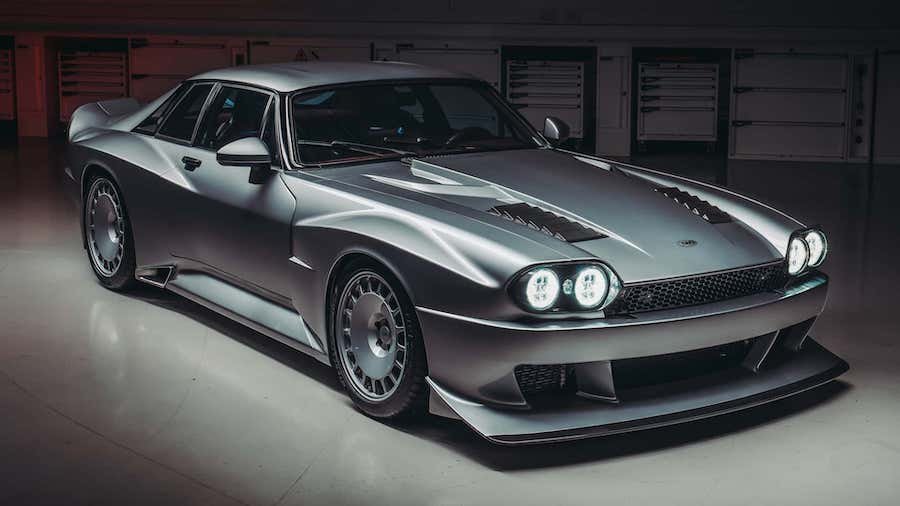TWR Supercat: Jaguar XJS Returns with Dramatic Styling

Jaguar as we know it is dead. It’s about to enter a new era by ditching combustion engines to compete in ultra-luxury EV territory. But if you long for the good old days of the leaping cat, the XJS is making a spectacular return. No, Jag isn’t bringing it back. Instead, TWR is reviving the posh grand tourer through a boldly styled restomod with a carbon fiber body penned by Khyzyl Saleem.
Founded in 2020 as a separate entity from the legendary Tom Walkinshaw Racing, TWR is an engineering company. It won’t do just Jaguars and restomods but their inaugural project breathes new life into the XJS. Aptly named “Supercat,” the new-old vehicle is nearly 10% lighter than the original. It tips the scales at 3,538 pounds (1,605 kilograms) after fitting that wildly designed carbon body. Customers can also opt for carbon-ceramic brakes at both axles.
From the boxy wheel arches to the aggressively aerodynamic front and rear ends, a lot is going on outside. TWR gave the Supercat a side-exit exhaust not just for show, but to make room for the flatter underbody and a giant rear diffuser. The car is also slightly wider than the original XJS and has much bigger wheels than the stock 15-inch setup: 18 inches at the front and 19 inches at the rear.
Beyond the outlandish styling, there are skin-deep changes. The chassis has been reinforced with carbon fiber while the subframe uses TWR-designed, high-strength T45 tubular stainless steel. The double wishbone suspension now has active and adjustable dampers while a limited slip differential has been added as well. To bolster stability beyond the LSD, the Supercat also has a traction control system. Keeping up with the times, there are even five selectable driving modes.
But the pièce de résistance is undoubtedly lurking from underneath the vented hood. The engine is now a bored-out supercharged 6.5-liter V-12 instead of the original 6.3-liter mill. The enlarged powertrain makes 660 hp and 538 lb-ft (730 Nm) channeled to the rear axle via a six-speed manual gearbox featuring launch control. The standard XJS V12 HE referenced by TWR made do with 281 hp and 318 lb-ft (431 Nm) delivered to the wheels through a three-speed automatic transmission.
While the donor car had a 2+2 layout, the Supercat is strictly a two-person affair with electric seats and a larger cargo area. If there’s one thing we don’t like about the car, it’s the fully digital instrument cluster. Surely some nice analog gauges would’ve been more suitable since everything else looks nice and retro inside. We particularly like the carbon fiber-backed leather seats and the shifter. The digital instrument cluster isn’t the only screen since TWR also added a center infotainment display with Apple CarPlay and Android Auto support.
TWR is converting only 88 XJS cars to the Supercat specification. It’s not a random number as it harkens back to 1988 when Tom Walkinshaw’s XJR-9 won at Le Mans with the Silk Cut Jaguar team's endurance race car driven by Andy Wallace (Bugatti’s current test driver), Johnny Dumfries, and Jan Lammers. That year, a different XJR-9 from Silk Cut Jaguar finished fourth.
Both left- and right-hand-drive configurations are available. TWR is already taking orders in the US, the UK, Europe, Asia, and the Middle East. Only a limited number of vehicles are still available. At home in the UK, the car kicks off at £225,000 ($285,000) before taxes and should you be interested, an initial £35,000 ($44,000) deposit is necessary before signing your name on the dotted line.





Nouvelles connexes
